'All 50 States Bar Private, Unauthorized Paramilitary Activity'JANINE JACKSON  Janine Jackson interviewed Institute for Constitutional Advocacy and Protection’s Mary McCord about unlawful militias for the October 9, 2020, episode of CounterSpin--recorded before news was in about an alleged attempt by private paramilitaries to kidnap the governors of Michigan and Virginia. This is a lightly edited transcript. MP3 Link 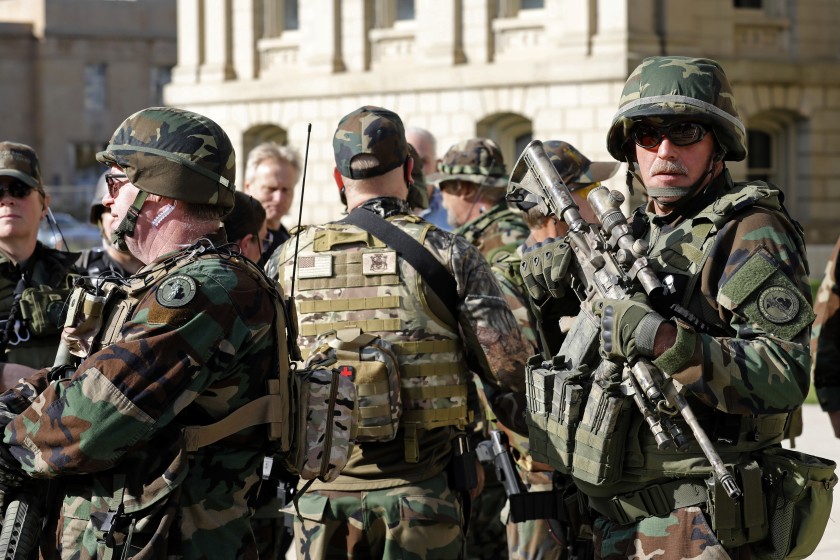 LA Times depiction (10/10/20) of members of the Michigan Home Guard, an unauthorized paramilitary group, demonstrating outside the Michigan statehouse. (photo: Jeff Kowalsky/AFP) Janine Jackson: A major worry, in an electoral season that has enough of them, is the prospect of people in military garb, and armed with lethal weapons, showing up at polling stations, marching around and, minimally, staring menacingly at people. Some of those would be part of self-declared “militias,” a term we've heard thrown around, but news reporting on militia intervention in the election, for example, reads a bit like that of an oncoming storm cloud: It's not good, but what are you going to do? The thing is, there are laws, and we can have a public conversation around the fact that people in camo with guns are showing up at social justice protests and threatening people, claiming they have a constitutional right to do so. Addressing a concern starts with understanding it, and that's what our guest does. Mary McCord is legal director at the Institute for Constitutional Advocacy and Protection, and a visiting law professor at Georgetown University. She joins us now by phone. Welcome to CounterSpin, Mary McCord. Mary McCord: Thank you. It's good to be here. JJ: Let's start, I guess, with some definition. What defines a militia, and what makes a militia unlawful? MMC: Right. Well, it's a good question, because oftentimes these unauthorized armed groups of individuals will point to the Constitution's use of the word “militia” as their authority to exist. But “militia,” as used in both federal and state law, simply refers to all able-bodied residents between certain ages—it's usually like 17 to 45, or some states, 17 to 55—who are available to be called forth by the government in defense of the state. So in the case of the US Constitution, Congress has that authority to call them forth through statutory enactments, and then they would report up to the president, and in the states, it's the governor who has the authority to call them forth. But there is no authority under federal or state law for groups of armed individuals to sort of self-activate as a militia and undertake what are typically law enforcement functions, or even functions of actual state-sponsored militias. So the only lawful militia is the militia that's been called forth by the state; for example, the state National Guards, those are what the Constitution refers to as the state militias. Those are official military organizations that report up through the governor, or the governor's deputized person. So there's no authority for this sort of self-deployment. JJ: I wonder if we could talk a little bit about DC v. Heller, because the Second Amendment is this kind of zombie idea; it's this idea that just won't let go, the invocation of it. And even news media present it as kind of, “Well, some people interpret the Second Amendment as giving them the right to organize and do this,” but the law actually did speak on this, yeah? MMC: Yes. In fact, the Supreme Court has been very clear about this. There's a lot of gray area in the Second Amendment; this is not one of those gray areas. So I'll get to Heller in a minute, but Heller actually reiterated an opinion that the Supreme Court issued in 1886. In that case, it actually upheld a state statute, which exists on the books of 29 states even to this day, a state statute that bars bodies of men from associating together as a military unit, or parading or drilling with firearms in public. Now, mind you, this dates to post–Civil War, that's when these statutes were passed, and you can imagine the last thing that states wanted to have to reckon with were rogue militias that might threaten their own authority. So in that case in 1886, the Supreme Court thought it without question that states must be able to ban paramilitary organizations in order to preserve peace and good order. 2008, in District of Columbia v. Heller, the Supreme Court decided, for the first time, that the Second Amendment protects an individual right to bear arms for individual self-defense, and it actually pointedly contrasted that right with things that are not protected, and it restated its decision from 1886 that the Second Amendment does not prevent states from prohibiting paramilitary organizations; and, in fact, all states do. JJ: And we're gonna get to that, to that state-by-state guide that I know that ICAP has just put out. But the law is just words on a page until it's activated, and the group that you work with, the Institute for Constitutional Advocacy and Protection at Georgetown University, activated the law in the wake of the “Unite the Right” rally in Charlottesville, Virginia in 2017, in which, listeners will know, James Fields drove his car into people who showed up to oppose this tiki torch, Nazi-evoking march, and Heather Heyer was killed, and many were injured. What did you see in that that suggested a response that you could use with existing legal and policy tools, and what came out of that? 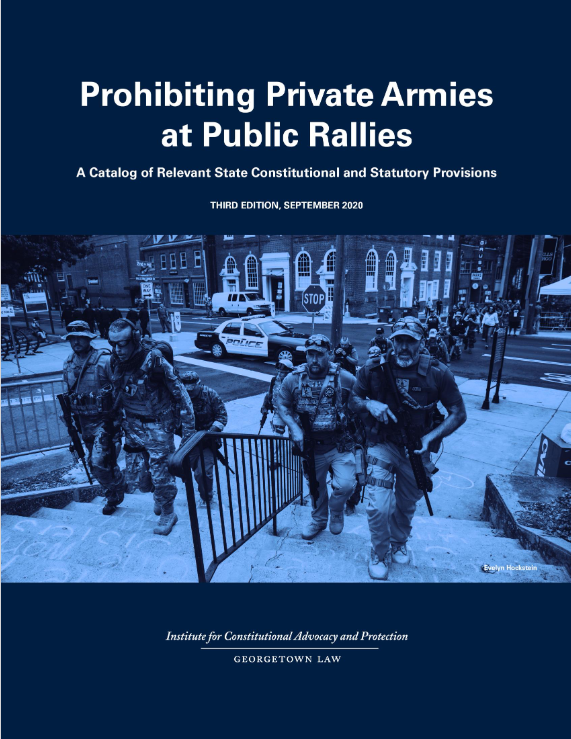 Institute for Constitutional Advocacy and Protection (9/20) MMC: Yeah, that's where this sort of strange niche expertise has developed in anti-militia law; that's really where it first started. So in the immediate aftermath of that really horrendous event, a lot of commentators were a little bit shrugging and saying, “Well, what can be done? There's a First Amendment right to engage in free speech and assembly, and there's a Second Amendment right to bear firearms, and Virginia is an open-carry state.” And it was kind of like, “Wow, what can be done?” But as lawyers, and particularly those—I'd spent most of my career at the Department of Justice, until early 2017—myself and my colleagues, we thought, “Well, the First Amendment does not protect violence, and it doesn't protect incitement to imminent violence. And the Second Amendment, thanks to the decision in Heller, we know protects an individual right to bear arms for self-defense, but it doesn't allow groups to organize together as private armies.” And so that's what led us to the state anti–paramilitary activity laws in Virginia, which is where the “Unite the Right'' rally took place, and that's what also eventually led us to learn that all 50 states include provisions, either in their state constitutions or in state statutes, that bar private, unauthorized paramilitary activity. And so we relied on those—in Virginia, it's a constitutional provision as well as a criminal statute, and also an additional criminal statute that bars individuals from falsely assuming the functions of law enforcement, as we see some of these militias do—so we relied on all of those laws to seek a court order to prohibit these groups from returning in the future and engaging in that kind of armed, coordinated use of force, or projection of the ability to use force. We weren't seeking damages for injuries in the past; there's other lawsuits doing this. This was purely forward-looking relief. And we represented the city of Charlottesville, and local businesses and local residential associations who were concerned that the white nationalists were going to return with their heavy militarization, and cause similar violence in the future. 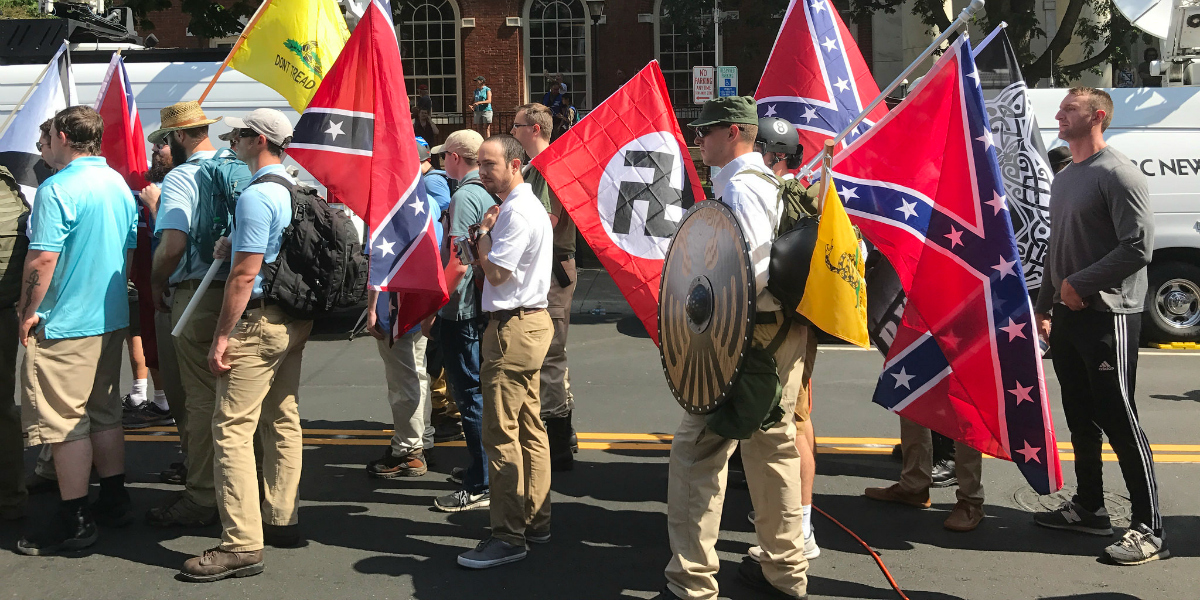 The 2017 "Unite the Right" rally in Charlottesville, Virginia (cc photo: Tony Crider) And that case was successful; we won on all of our theories against a motion to dismiss the case, and then after that, actually, it resolved before trial, because every one of the 23 different individuals and organizations who were defendants ended up agreeing, by consent decree, to court orders that would prohibit them, permanently, from returning to Charlottesville as part of units of two or more people, acting in concert, with weapons, during any rally protest, demonstration or march. And so that work is what caused us to do, then, ultimately a 50-state catalogue of the laws that prohibit private paramilitary activity; that's what's led us to actually partner up with the district attorney in Albuquerque, New Mexico, in another, similar case against an unlawful militia there. And it's what led us to do the 50 fact sheets that we've recently published, a separate one for every state, to help people know what to do if they see groups of armed individuals around polling places. And that's not just so that voters will know, that that can be intimidating, and that it's illegal, but it's also so election officials will know, and so local law enforcement will know, and state elected officials will know, and state attorney generals and secretaries of state -- because there's been such a mythology about the Second Amendment, that so many people actually believe it protects this activity, and it does not. So part of this was just to make sure to get that word out there to correct the record: This is not constitutionally protected. JJ: And I'll just add, in looking through your recent writings, I see the phrase “sit idly by” recur as an indication that that's not what we need to do; we don't need to just let this happen; there are things that folks can actively do to push back against the encroachment of these unlawful militias in our communities, yeah?  Mary McCord: "It's not to anyone's benefit to intimidate voters. It's not to anyone's benefit to have armed, non-publicly accountable individuals, private armies, on the streets." MMC: That's right. In fact, that phrase is from the circuit court's opinion in our Charlottesville case, that the state and the city should not have to sit idly by and allow this to happen. And in fact, since we put out these fact sheets in the last week, we've had engagement with state and local officials at multiple different levels from multiple different states, and some are starting to make strong statements. The district attorney in Philadelphia, for example, held a press conference just recently with election officials, as well as state and local elected officials, and he invited me to be part of that as well, to explain to the voters that they intend to take voter intimidation laws seriously, and the anti-militia laws seriously, and they will be enforced, so that every voter in Philadelphia can feel safe in going to the election, that the district attorney's office and other election officials are monitoring for this, and won't allow it to happen. And our hope is that more officials will make similarly strong statements. It should be a completely nonpartisan issue, because it's not to anyone's benefit to intimidate voters. It's not to anyone's benefit to have armed, non-publicly accountable individuals, private armies, on the streets. And so, again, we put this out there, informational, in a nonpartisan way, in the hope to just be able to give people a chance to prepare for things that could be coming, but that we hope will not be. JJ: We've been speaking with law professor Mary McCord, legal director at the Institute for Constitutional Advocacy and Protection at Georgetown University. Mary McCord, thank you very much for joining us this week on CounterSpin. MMC: Thank you. | 
 resident Trump’s four-year effort to manipulate the Justice Department to protect himself and serve his political ends has suffered some spectacular failures. The department’s investigation into possible wrongdoing related to “unmasking” has ended without incident. Trump’s frequent demands that the department indict people he considers political enemies appear unlikely to be satisfied. Trump tried to fire special counsel Robert S. Mueller III and squelch publication of Mueller’s report, but executive-branch subordinates would not cooperate.
resident Trump’s four-year effort to manipulate the Justice Department to protect himself and serve his political ends has suffered some spectacular failures. The department’s investigation into possible wrongdoing related to “unmasking” has ended without incident. Trump’s frequent demands that the department indict people he considers political enemies appear unlikely to be satisfied. Trump tried to fire special counsel Robert S. Mueller III and squelch publication of Mueller’s report, but executive-branch subordinates would not cooperate.

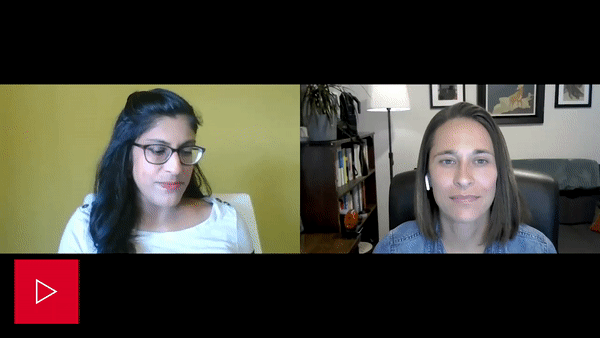

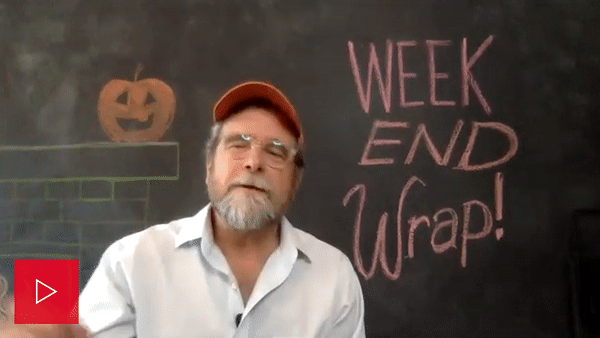









 s Amy Coney Barrett's
s Amy Coney Barrett's 